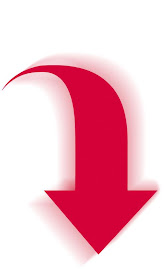
(From left : Mikki Taylor (my fab former boss) , Same Fine (renowned makeup artist) , Candace Corlett, and Rosemarie Ingleton)
African-American women are vibrant shoppers of prestige beauty brands, but their biggest challenge is finding products that are effective and effectively marketed toward them. Such points were revealed last week at Essence’s Smart Beauty panel, which discussed the African-American woman’s shopping experience in the prestige beauty market.
Essence beauty and cover director Mikki Taylor led a discussion on the findings with celebrity makeup artist Sam Fine, dermatologist Rosemarie Ingleton and Candace Corlett, president of WSL Strategic Retail, at a breakfast at the Mandarin Oriental in Manhattan.
African-American women spend $7.5 billion annually on beauty products, but shell out 80 percent more money on cosmetics and twice as much on skin care products than the general market, according to the research. That difference comes as African-American women sample many more products to find the ones that are most effective on their skin.
“She spends a lot, but there’s little satisfaction. What keeps us buying is the hope that this product will do what it’s supposed to do,” said Fine.
The type of beauty goods she’s searching for, according to the findings, are brands she trusts, that reflect her personal style and offer high-quality ingredients. She’s also more likely to buy products from aspirational labels — Chanel lipsticks and Versace perfume, for example — than brands that are associated with celebrities.
Nevertheless, Fine said she believes African-American women are looking for affirmations of their own beauty through seeing spokespersons or models of color in ad campaigns for beauty products. One area that was void of faces of color were antiaging products, according to Fine.
“There’s no face of aging in the African-American community,” said Fine. “There’s Sharon Stone and Christie Brinkley, but no one who’s African-American.”
Essence beauty and cover director Mikki Taylor led a discussion on the findings with celebrity makeup artist Sam Fine, dermatologist Rosemarie Ingleton and Candace Corlett, president of WSL Strategic Retail, at a breakfast at the Mandarin Oriental in Manhattan.
African-American women spend $7.5 billion annually on beauty products, but shell out 80 percent more money on cosmetics and twice as much on skin care products than the general market, according to the research. That difference comes as African-American women sample many more products to find the ones that are most effective on their skin.
“She spends a lot, but there’s little satisfaction. What keeps us buying is the hope that this product will do what it’s supposed to do,” said Fine.
The type of beauty goods she’s searching for, according to the findings, are brands she trusts, that reflect her personal style and offer high-quality ingredients. She’s also more likely to buy products from aspirational labels — Chanel lipsticks and Versace perfume, for example — than brands that are associated with celebrities.
Nevertheless, Fine said she believes African-American women are looking for affirmations of their own beauty through seeing spokespersons or models of color in ad campaigns for beauty products. One area that was void of faces of color were antiaging products, according to Fine.
“There’s no face of aging in the African-American community,” said Fine. “There’s Sharon Stone and Christie Brinkley, but no one who’s African-American.”
My Comments
As a self proclaimed Beauty Maven, I truly value and am inspired by black beauty and all that it defines. From the past entrepreneurs such as Madame CJ Walker, to the future - makeup artists and beauty editors that are the vehicles of getting the beautiful story out there to women in the black community.
I acknowledge that African American women are very beauty & hygiene conscious. We will have our hair done in the flyest lace front weave but can not afford to pay for rent. I have found myself in that predicament once or twice.
I do appreciate that many consumer brands have beautiful African American faces representing them. To name a few :
Beyonce : L'Oreal
Gabrielle Union : Neutrogena
Rihanna, Queen Latifah : Covergirl
Liya Kebede : Estee Lauder
Arlenis Sosa : Lancome
Angela Bassett : Olay
Nonetheless, there can never be too much representation of African American women in the cosmetic industry with the fact that it is known that we purchase 7.5 billion dollars worth annualy of cosmetics. I remember my dad taught me early, if there's not a black face on the magazine, why are you reading it? Of course I don't only read magazines that only feature African Americans, however I appreciate those more and will likely pay for subscription. Furthermore, many cosmetic lines have become diverse and feature more shades then the banal Ivory, Peach, and Beige. There are now Cocoa, Mocha, and Espresso shades. While we aren't where we should be with Black representation in the beauty industry, we are moving in the right direction and I intend on being a trail blazer to move this effort further.
Source : WWD




























































